Today’s coloring sheet comes from a recently acquired volume, Thierbůch, Das ist ein kurtze beschreybung aller vier füssigen Thieren, so auff der erden vn[d] in wassern wonend (1583) by Conrad Gessner.
Enjoy!
Today’s coloring sheet comes from a recently acquired volume, Thierbůch, Das ist ein kurtze beschreybung aller vier füssigen Thieren, so auff der erden vn[d] in wassern wonend (1583) by Conrad Gessner.
Enjoy!
by Alan Krieger, Theology and Philosophy Librarian
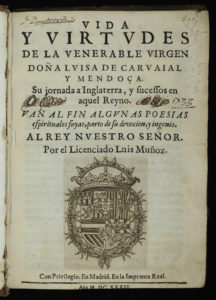 Hesburgh Libraries has just acquired a rare and interesting biographical first edition, Luis Munoz’s Vida y virtudes de la venerable virgen dona Luisa de Carvaial y Mendoca (Madrid, 1632). Mendoza (1566-1614), a Spaniard, is an unusual figure in the history of the English Recusant period: a Jesuit-educated female who travelled to England in 1605 to preach and teach with the aim of bringing Anglicans back to the Catholic Church. She also became known for her charitable works in London, taking care of the poor and helping those engaged in prostitution. Mendoza was also an accomplished religious poet, in the mystical tradition of great Spanish literary figures such as St. John of the Cross; the last section of the book includes her spiritual poetry.
Hesburgh Libraries has just acquired a rare and interesting biographical first edition, Luis Munoz’s Vida y virtudes de la venerable virgen dona Luisa de Carvaial y Mendoca (Madrid, 1632). Mendoza (1566-1614), a Spaniard, is an unusual figure in the history of the English Recusant period: a Jesuit-educated female who travelled to England in 1605 to preach and teach with the aim of bringing Anglicans back to the Catholic Church. She also became known for her charitable works in London, taking care of the poor and helping those engaged in prostitution. Mendoza was also an accomplished religious poet, in the mystical tradition of great Spanish literary figures such as St. John of the Cross; the last section of the book includes her spiritual poetry.
We have located only two other North American library holdings of this edition.
We join the Library of Congress, National Archives and Records Administration, National Endowment for the Humanities, National Gallery of Art, National Park Service, Smithsonian Institution, and United States Holocaust Memorial Museum in celebrating National Hispanic Heritage Month.
by Erika Hosselkus, Curator, Latin American Collections
In observance of Hispanic Heritage Month, Rare Books and Special Collections is pleased to highlight our newly acquired Latinx Ephemera Collection. This collection came to us from the University of Notre Dame’s Institute for Latino Studies. Many of the materials in the collection were acquired by Gilberto Cardenas, founding director of the institute and Professor of Sociology at Notre Dame.
This collection is comprised of pamphlets, reports, journal issues, flyers, and magazines related to Latinx culture that date primarily between 1966 and 1999. Some materials are political or historical in nature, addressing topics such as migrant labor, the work of iconic Latinx activists such as César Chávez, and grape boycotts. Others examine socio-economic conditions among Latinx populations, access to education, civil rights, employment, and immigration. Held together in one collection, these rare materials provide a diversity of insights into Latinx life and issues in and around the U.S. during the second half of the twentieth century.
A sample of collection highlights follows:
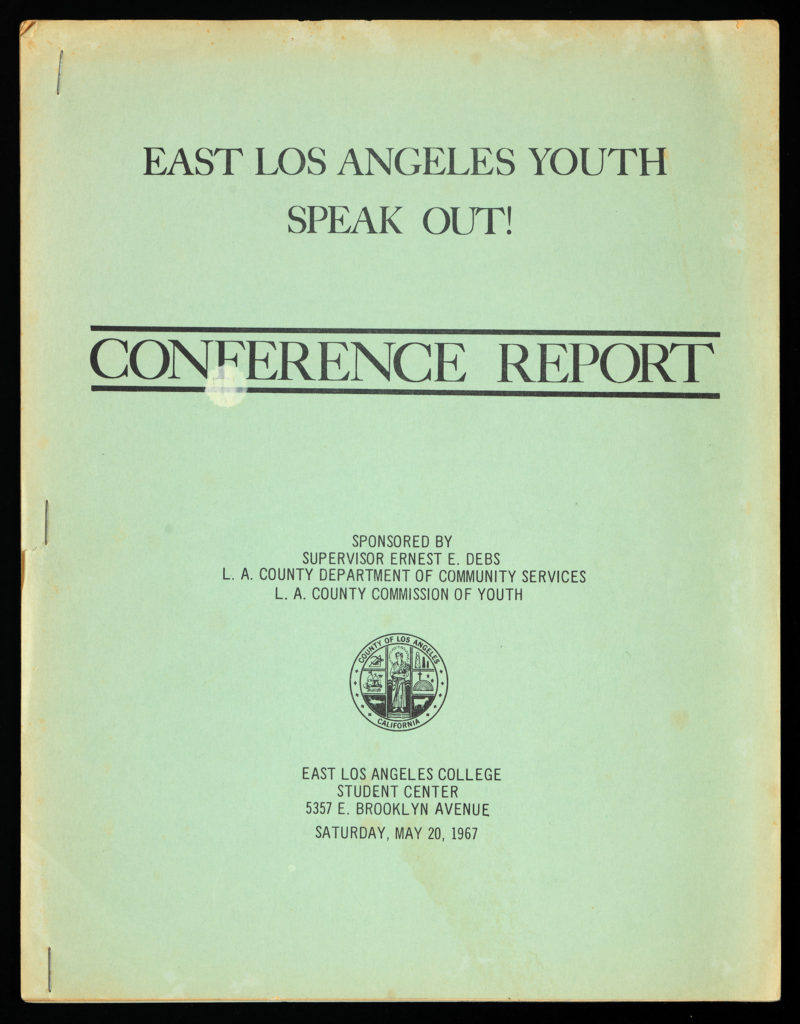
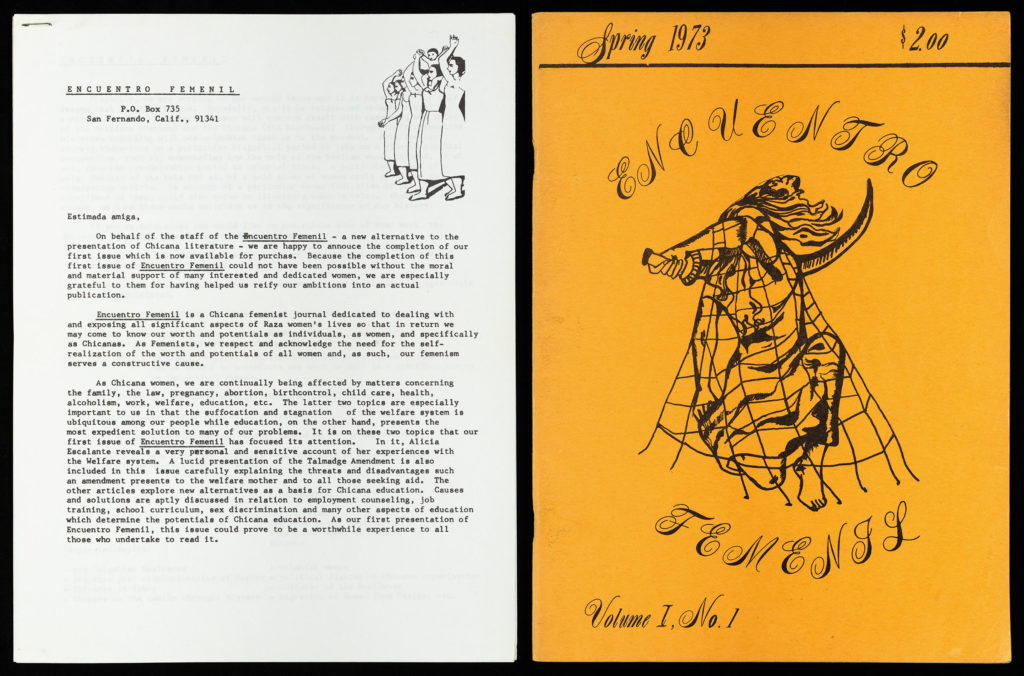
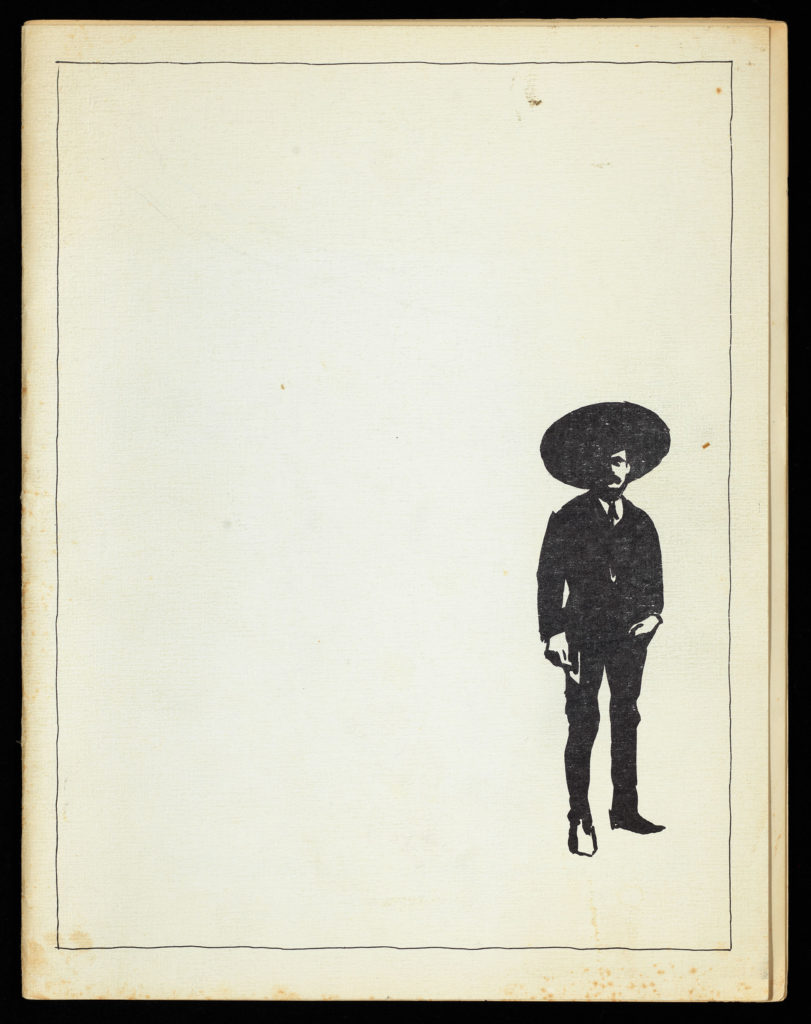
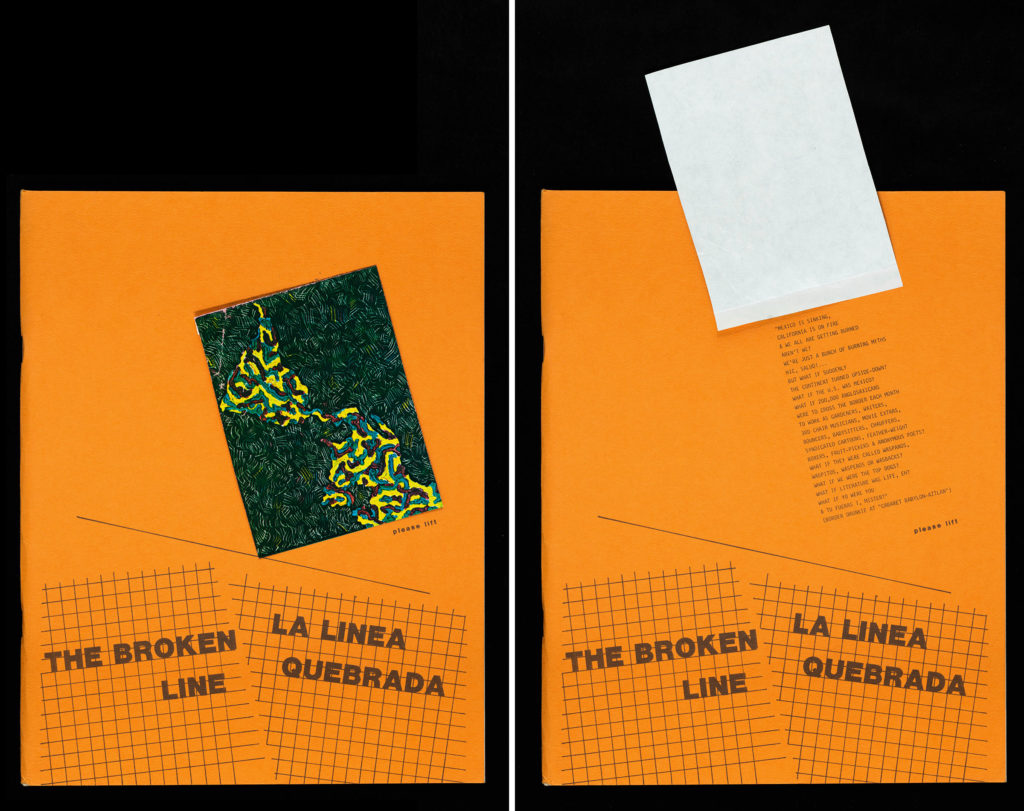
This collection is open for research. A full list of collection contents is available online.
National Hispanic Heritage Month 2017: Sergio Sánchez Santamaría
National Hispanic Heritage Month 2018: Puerto Rican Artists
by Rachel Bohlmann, American History Librarian and Curator
The pages of this 1844 album contain not poetry, fiction, or a personal journal, but rather very fine samples of embroidery, sewing, and lace making. Created and assembled by a young Belgian girl, E. Carlier, the album displays her skills. It also shows her abilities in penmanship and calligraphy; she executed a decorative title page for her album, which served as a dedication (to her mother).
Mademoiselle Carlier carefully sewed each piece of needlework onto the album’s pages and pasted in a short label written in a neat hand. The first item, which she called simply, “Marque,” is an alphabet sampler. The following pages include an embroidery sampler and sewing exercises, and miniature examples of a shirt, an apron, a dress, a corset, and an embroidered fichu, as well as samples of crochet, knitting, and other lace making.
Up through the middle of the nineteenth century, girls expressed significant accomplishment in needle arts through the form of sampler albums. This one is particularly finely done, but learning to sew and mastering more advanced skills of lacemaking remained an important part of many girls’ education.
This item is still in process and does not yet appear in the catalog.
Please join us for the following events being hosted in Rare Books and Special Collections:
Thursday, September 5 at 5:00pm | Italian Research Seminar – “‘Gli occhi della fantasia.’ Mental Images and Poetic Imagery in Leopardi” by Sabrina Ferri (Notre Dame).
Thursday, September 19 at 5:00pm | Italian Research Seminar – “Parabola in Boccaccio (I.1; X.10)” by Ambrogio Camozzi Pistoja (Harvard).
Thursday, October 3 at 5:00pm | Italian Research Seminar – “Reading the Medieval Mediterranean: Navigation, Maps, and Literary Geographies. Questions, Approaches, and Methods” by Roberta Morosini (Wake Forest).
The Italian Research Seminar is sponsored by the Center for Italian Studies.
The fall exhibit Hellenistic Currents: Reading Greece, Byzantium, and the Renaissance is now open and will run through the end of the semester.
The current spotlight exhibits are Libros de Lectura: Literacy and Education after the Mexican Revolution / Alfabetismo y Educación después de la Revolución Mexicana (June – August 2019) and Art in a 19th-Century Household in Ireland: The Edgeworth Family Album (August – September 2019).